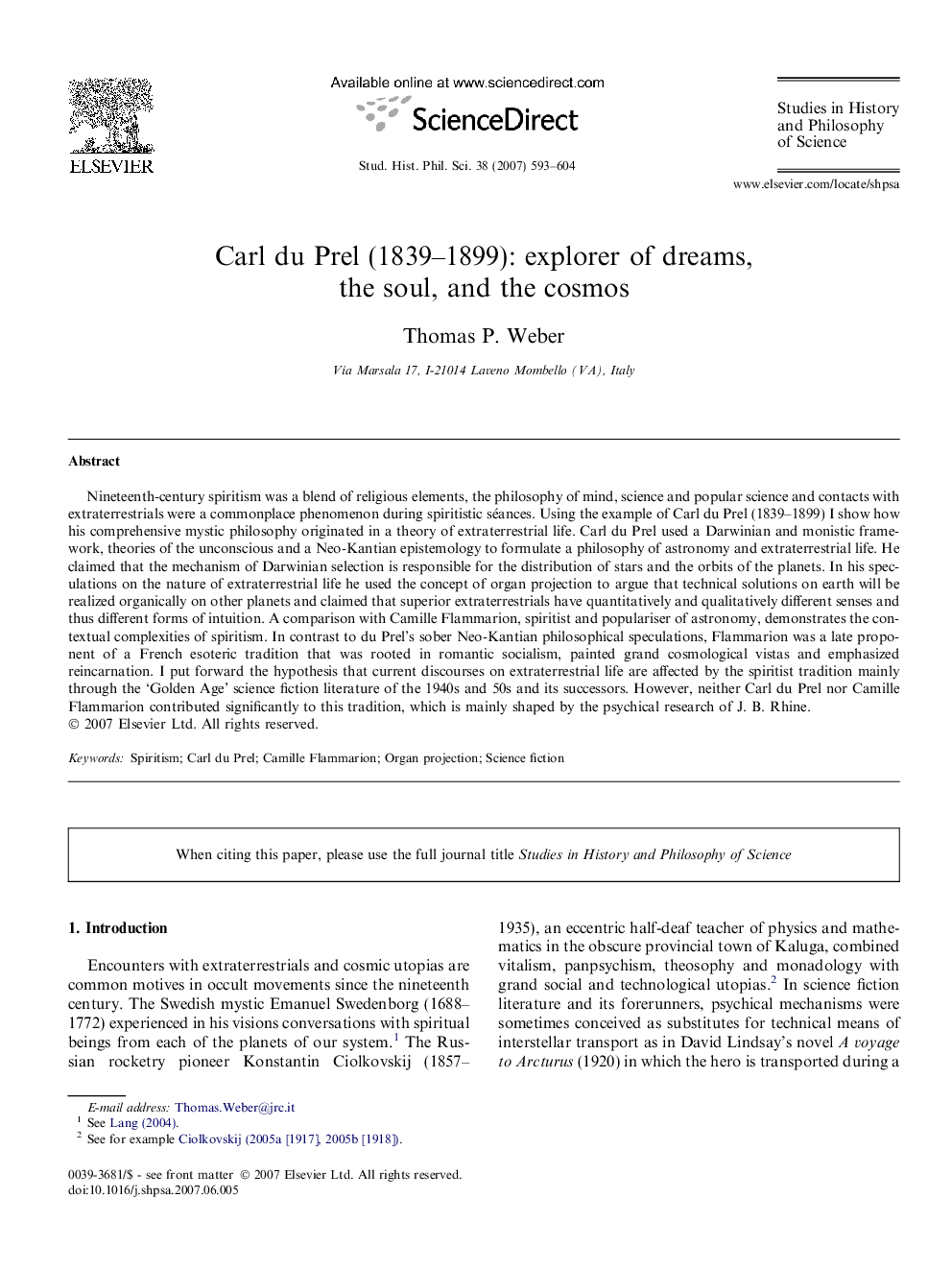| Article ID | Journal | Published Year | Pages | File Type |
|---|---|---|---|---|
| 1160987 | Studies in History and Philosophy of Science Part A | 2007 | 12 Pages |
Nineteenth-century spiritism was a blend of religious elements, the philosophy of mind, science and popular science and contacts with extraterrestrials were a commonplace phenomenon during spiritistic séances. Using the example of Carl du Prel (1839–1899) I show how his comprehensive mystic philosophy originated in a theory of extraterrestrial life. Carl du Prel used a Darwinian and monistic framework, theories of the unconscious and a Neo-Kantian epistemology to formulate a philosophy of astronomy and extraterrestrial life. He claimed that the mechanism of Darwinian selection is responsible for the distribution of stars and the orbits of the planets. In his speculations on the nature of extraterrestrial life he used the concept of organ projection to argue that technical solutions on earth will be realized organically on other planets and claimed that superior extraterrestrials have quantitatively and qualitatively different senses and thus different forms of intuition. A comparison with Camille Flammarion, spiritist and populariser of astronomy, demonstrates the contextual complexities of spiritism. In contrast to du Prel’s sober Neo-Kantian philosophical speculations, Flammarion was a late proponent of a French esoteric tradition that was rooted in romantic socialism, painted grand cosmological vistas and emphasized reincarnation. I put forward the hypothesis that current discourses on extraterrestrial life are affected by the spiritist tradition mainly through the ‘Golden Age’ science fiction literature of the 1940s and 50s and its successors. However, neither Carl du Prel nor Camille Flammarion contributed significantly to this tradition, which is mainly shaped by the psychical research of J. B. Rhine.
